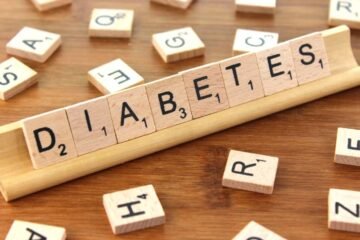Cold food consumption has become more and more popular as the years go by. People are starting to eat more and more cold foods, especially salad items.
Salads have become a staple food in diets like the keto diet and the Whole 30 diet. These diets encourage you to eat lots of greens and vegetables, along with some protein add-ons and dressings.
Ice cream shops are opening up everywhere and creamier ice creams are becoming more popular as well. Smoothies are becoming thicker with additions of nut butter or coconut milk. You can even buy bags of frozen fruits and veggies to make a smoothie on your own!
With these trends rising, it is important to know if eating cold food is bad for you. While it may seem like a good idea because it helps you conserve food, it could have consequences later on.
Definition of cold

When we talk about eating cold foods, we mean foods that are at temperature below room temperature. This can be anywhere from straight out of the fridge to fridge-cold to ice cream scoop to just melted ice cream.
Typically, foods that are served at room temperature are considered safer than eating cold food that is chilled. This is because bacteria growth is slowed down at lower temperatures.
However, in the case of cold food, it depends on the ingredient mix. Some contain oils or butter that will not melt even at freezing points, thus requiring very high heat to demolish it.
Thus, it is best to check if your favorite cold foods are safe by looking at the nutrition facts and seeing if they contain any ingredients that would not melt at low temperatures.
Causes cold symptoms
A less serious cause for concern is when eating cold foods causes you to experience cold symptoms. These can be fun if you are eating ice cream or salad, but not so fun if you are consuming veggies and salads.
Many people enjoy putting butter on their toast or sandwiches. While this can be delicious, the solid butter can melt onto the bread, making it warm. If you were to then put a frozen beverage in the same glass or cup, the beverage would melt the butter and cause it to run all over the place.
The same goes for putting ice in your drinks. If your drink is warm, then the ice will slowly melt, causing a watered down drink. If your drink is cold, then the ice will begin to melt and water down the beverage even more. This would not be very enjoyable!
To prevent these causes of cold symptoms, try storing your food in airtight containers or ziploc bags to prevent exposure to external temperatures.
Can cause stomach bugs
Another reason not to eat cold food is because it can cause stomach bugs. This is especially true if you are eating raw meat or seafood.
Parasites can be present in raw meat and seafood and can be killed by freezing meat or seafood. Because parasites cannot survive temperatures below 40 degrees Fahrenheit, just making your food cold isn’t good enough- you need to freeze it!
Parasites can live in the gut of fish and worms called nematodes and are one of the most common causes of diarrhea. While rarely serious, they can be quite unpleasant.
So, if you’re craving that sushi or that fresh salmon, make sure it’s thoroughly cooked! Or better yet, have it warmed up again the next day. You could even have the fun task of trying to find out whether it’s cooked or not.
However, there is one thing you should know before doing so: cooking protein does not eliminate harmful bacteria like Salmonella or E. coli.
May reduce vitamins
Freezing and thawing foods can reduce the amount of some vitamins they contain. This is because some vitamins are damaged by the process of freezing foods.
Certain foods are more at risk of having their vitamin content reduced than others. For example, vegetables like spinach lose more vitamin K when frozen than, say, rice, which loses more B1 when frozen.
However, nutrition experts say this loss is not significant and does not suggest you avoid frozen foods that contain these nutrients. Instead, nutrition experts recommend eating a variety of foods both fresh and frozen to get the most nutritional value.
Several studies have found little difference in the levels of nutrients in frozen fruits and vegetables compared to those that are fresh. One study even found higher levels of some antioxidants in the frozen varieties. Antioxidants are compounds that may help protect your body against health problems like heart disease and cancer.
Can lead to food poisoning
One of the main reasons why eating cold food is considered unhealthy is because it can lead to food poisoning. If you do eat cold food, make sure it is quality food and you let it sit out long enough to heat through.
Many times people think they are saving time by putting out frozen foods or foods that are cooled in the refrigerator overnight, but this can lead to trouble.
Food poisoning is a serious concern as well, as it can cause severe nausea, vomiting, and even death in some cases. This is why it is important to be aware of what risks exist when deciding if eating cold food is healthy or not.
Aside from the risk of bacteria growth, refrigerating foods can also decrease their nutritional value. For example, butter becomes firm when left out, which may not look very appetizing but does prevent wasting any of it.
Bad for the taste of food
A lot of people enjoy cold food, especially during the summer months. Many people enjoy eating cold salads, ice cream, and other desserts and foods.
While it is nice to have a cool snack, eating cold food can be bad for you. You are putting your body at risk for metabolic issues if you eat too much cold food.
Many foods contain calories and sugar that can put your body into storage mode. This is not what your body needs when you are cooling yourself down with food!
You need to have a balance of hot and cold foods to keep this from happening. By having both types of food, you can keep your body from storing too much fat while still satisfying your hunger.
If you need to eat more cold food due to lifestyle factors, try to limit how much you are eating to help combat this issue.
Bad for your teeth
Cold food can also be bad for your teeth. As mentioned before, ice cream can stick to your teeth, but if you brush your teeth soon after eating ice cream or any other cold food, you are good to go.
Ice cream can also cause tooth decay through a process called lipid fission. Lipid is the chemical name for fat and fission is what happens when a molecule breaks into smaller parts.
When you eat solid foods that contain fat, they can become stuck in between your teeth. As you eat more of these foods, they accumulate and eventually become dental plaque which is a mix of bacteria and yeast on your teeth. The cold ice cream does not melt completely so it does not wash away easily which makes it harder to prevent plaque from forming.
Ways to reduce cold foods

Cold food concerns mostly center on plastic chemicals that may be featured in packaging. Many foods, especially fish, poultry, and eggs, are required to be packaged in plastic wrap or containers to prevent contamination from bacteria.
Fortunately, you can easily reduce your exposure to plastic chemical contaminants by carefully examining your food and its packaging before eating or storing it.
Drink tap water from a stainless steel bottle or a glass bottle instead of a plastic bottle. Keep a list of places where you can purchase these bottles and shop for them.
From: https://www.inverse.


















